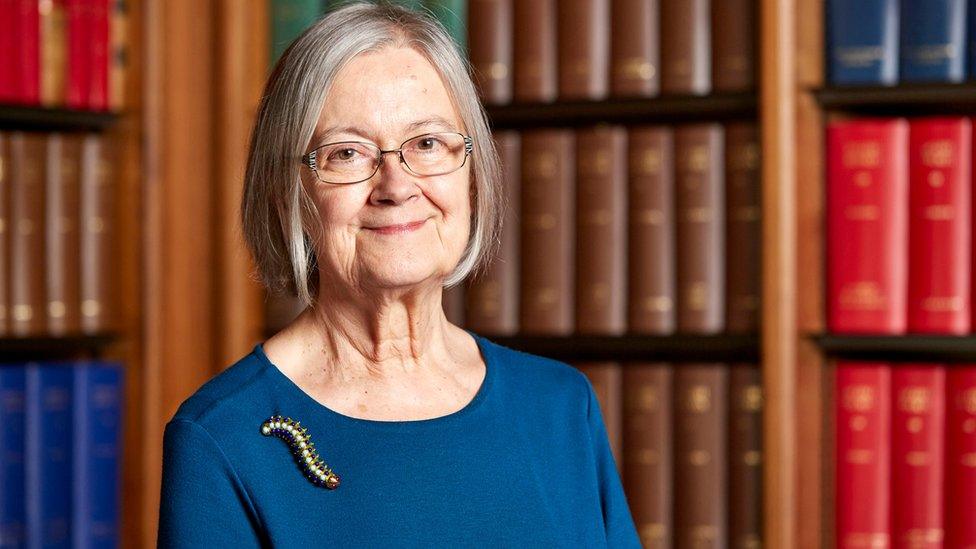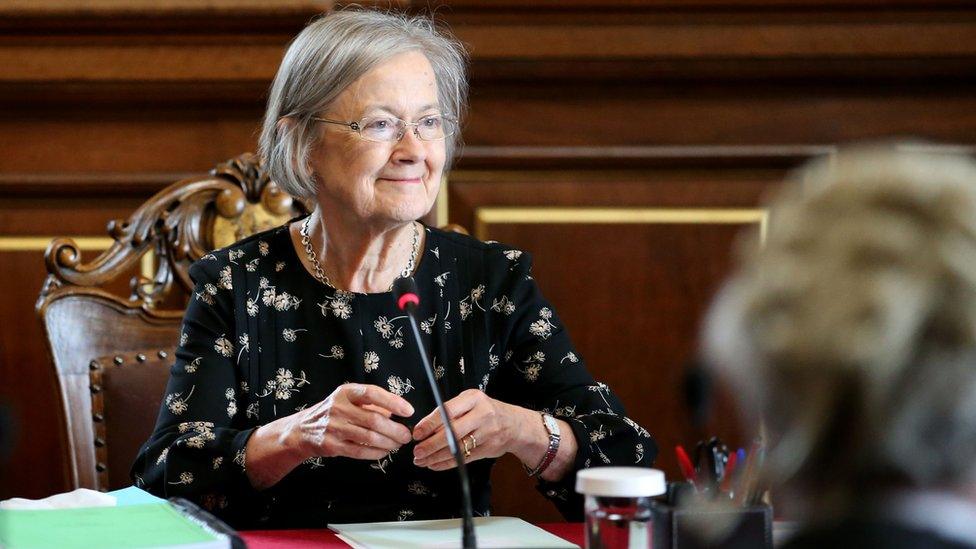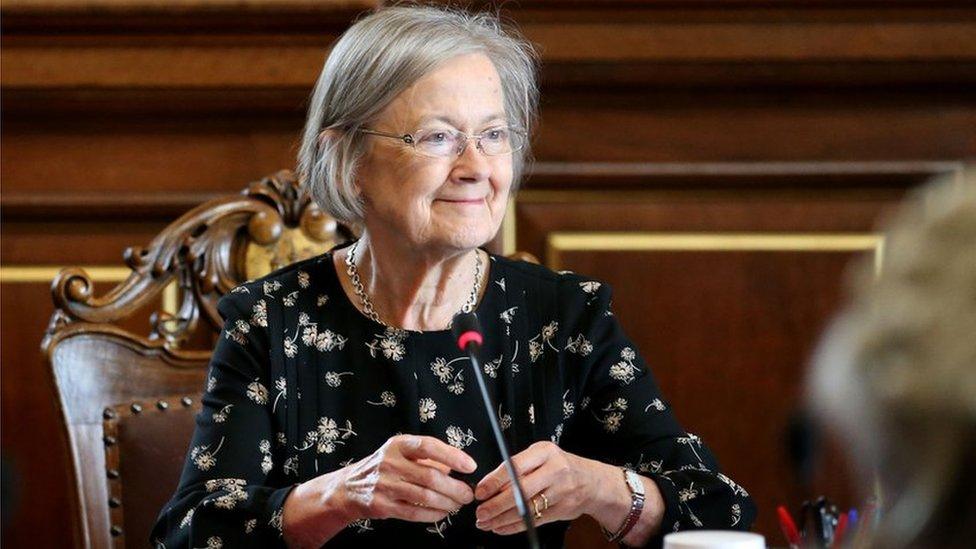Baroness Hale appointed as UK's first female top judge
- Published

Baroness Hale is to become the first female president of the UK's Supreme Court, Downing Street has said.
The 72-year-old will succeed Lord Neuberger, who is retiring in September, having been his deputy since 2013.
Lady Hale, who will be sworn in on 2 October, said: "It is a great honour and a challenge."
Lord Neuberger said her appointment was "a fitting pinnacle to a truly ground-breaking career".
Baroness Hale: The legal trailblazer
Born in Richmond in North Yorkshire, Lady Hale's other career highlights include becoming the UK's first woman Law Lord in 2004, and then the first woman Justice of the Supreme Court in 2009.
She has previously criticised the judicial appointments system for selecting from a pool of predominantly white men from similar economic and academic backgrounds.
High-profile cases
During her time as deputy president of the Supreme Court, Lady Hale has ruled on many high-profile cases, including the government's Brexit appeal and the appeal from the parents of the sick baby Charlie Gard.
She was recently on the panel of justices who ruled in favour of a gay man who won a landmark ruling to give his husband the same pension rights as a wife would receive.
The Supreme Court is the final court of appeal for civil cases in the UK, and criminal cases from England, Northern Ireland and Wales, which means it considers cases where an order has already been made in a lower court and is being challenged.
A family law expert, Lady Hale said: "I look forward to building upon (Lord Neuberger's) pioneering achievements, including developing closer links with each part of the United Kingdom, for example by sitting outside London, and improving the ways in which we communicate our work to the public.
"Recent high-profile cases mean that more people than ever before have heard of the Supreme Court, and we hope that this will help to create a broader understanding of how the judiciary serves society."
'Encouragement to all'
The Bar Council said the appointment will "serve as encouragement to all" for greater diversity in law.
Andrew Langdon QC, chairman of the Bar, described Lady Hale as "most distinguished" and said she "has long been at the forefront in the task of arguing for a properly diverse judiciary".
Lady Hale will be officially sworn in as president in October, along with three new justices, including a second female judge, Lady Justice Black.
"While I of course look forward to working alongside all my colleagues, it is a particular pleasure for me to be taking up the post at the same time as we welcome only the second ever woman to sit on the UK's top appeal court," Lady Hale added.

Who is the first lady of the law?

Baroness Hale of Richmond began her career teaching law at the University of Manchester, becoming Professor of Law in 1986.
In 1984, she became the first woman to be appointed to the Law Commission - the statutory body which promotes the reform of the law.
She spent 10 years redefining the face of family law, and was instrumental in legislation such as the Children Act of 1989.
She was the founding editor of the Journal of Social Welfare and Family Law, and authored a pioneering case book on the family, law and society.
Lady Hale was made QC in 1989, and a High Court judge in 1994. She went on to become the UK's first woman Lord of Appeal in Ordinary in January 2004, and then the first woman Justice of the Supreme Court in 2009 - and the first family lawyer to fill the post.
She once said: "I have had such an unusual career, my colleagues don't compare themselves to me in the way that they otherwise might."

Sam Smethers, chief executive of the Fawcett Society, which campaigns for equality, said she was delighted by the appointment.
She added: "Not only because she is a woman but because her judgements often reflect a true understanding of women's lives and the violence and discrimination they experience.
"But I'll look forward to the day when we will no longer be commenting on women firsts at all."
Adam Wagner, a barrister specialising in public law and human rights, tweeted of the news: "Let's forget the gender thing for a sec: Brenda Hale is a great judge. She writes clearly, is principled, is respected by other judges."
He added: "Hale came from a different background to most other judges. She wasn't a barrister - [she] was an academic. This is a good thing.
"Hale is passionate about rights issues - she has given important judgements on mental disabilities, rights of children, women's rights."
- Published21 July 2017
